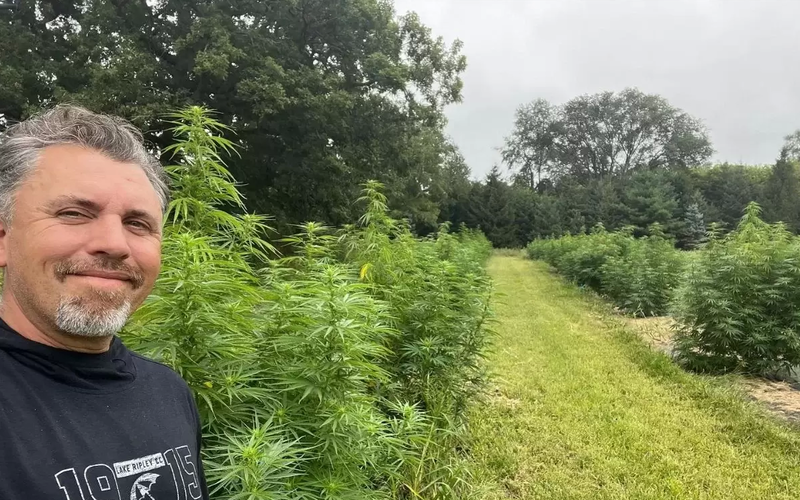The legal cannabis industry has evolved considerably in recent years. It has gone from an industry made up of several silo industries operating at a local level to an international community of emerging cannabis companies, with more entrepreneurs and investors joining every day.
The cannabis import and export markets are increasing in size as a result. Tribal Nations and Indigenous-led cannabis companies in North America, while still underrepresented in the cannabis industry, are at the forefront of international cannabis imports and exports.
Such entities act with autonomy due to tribal sovereignty, giving them a distinct advantage at both producing cannabis for export, as well as creating opportunities for international players looking to do business in North America.
A great example is Indigenous-owned All Nations Cannabis. All Nations Cannabis completed its first export to the international market in 2023. The company, in partnership with Shxwhá:y Village, became a vertically integrated business in 2022, producing and selling cannabis both at their own retail outlets and abroad.
“We’ve continued to grow high-quality cannabis and we’ve put that cannabis into two brands that we’ve launched, our All Nations premium brand, and Uncle Bob, our secondary brand, and we are selling through the provincial distribution system throughout Canada,” Darwin Douglas, CEO of All Nations Cannabis, told The Abbotsford News back in April 2023.
“I think it’s a huge accomplishment as a licensed producer operating not only on First Nations land, but also just as a licensed producer in the Fraser Valley to be making these big moves on the export front,” Douglas also stated at the time. “So we are really, really proud of our team, and all the hard work that’s gone into this, and excited for what the future holds on the export markets.”
Helping drive the Indigenous cannabis industry forward is the Indigenous Cannabis Industry Association (ICIA). A first-of-its-kind organization, the Indigenous Cannabis Industry Association exists to promote the exploration, development, and advancement of the cannabis industry for the benefit of all Indigenous communities.
ICIA is dedicated to the advocacy and empowerment of Indigenous cannabis businesses, influencers, and aspiring entrepreneurs along with being a conduit of connection and data for Indigenous Nations as they push towards a vision of an equitable, just, and sustainable Indigenous cannabis economy.
Founded by cannabis entrepreneur and member of the Bad River Band of the Lake Superior Tribe of Chippewa Indians Rob Pero in August 2022, ICIA creates opportunities for Indigenous people in cannabis and empowers the Indigenous community through policy, programming, and outreach initiatives.
In 2016 the National Congress of American Indians passed a resolution approving cannabis production to promote tribal self-determination and self-governance, create job opportunities, strengthen tribal governance, and promote equity in the cannabis industry. The current legal landscape of the cannabis industry is complex.
Tribal corporations are eligible to establish a ‘Foreign Trade Zone’ according to the U.S. Department of the Interior. A Foreign Trade Zone (FTZ) is a designated geographical area where foreign and domestic goods are treated, for tax and tariff purposes, as if they had never entered the United States. It’s an important distinction for cannabis imports and exports and is one of the many areas of public policy and industry regulations that the ICIA helps its members navigate.
Members of ICIA are also given access to ICIA’s network of Tribal Nations, industry partners, advocacy groups, mentors, businesses, and aspiring entrepreneurs to help navigate the complex landscape of tribal, state, and federal policy and to provide resources for Tribal governments and Indigenous people to design and advocate for equitable cannabis policies.
“In the rapidly evolving landscape of the international cannabis industry, the most significant yet untapped opportunity lies within the Indigenous cannabis sector. As founder of the Indigenous Cannabis Industry Association and a member of the Bad River Band of the Lake Superior Tribe of Chippewa Indians, I am proud to say that our communities and partners are pioneering a collaborative approach towards this burgeoning industry,” said Pero.
“We are committed to engaging in all aspects of the cannabis industry at the highest level, prioritizing public safety and wellness, while also recognizing the profound economic and workforce development potential. By activating our sovereign rights and abilities to self-determine sustainable commerce in emerging industries, Indigenous Nations are not only building global relationships but also setting a precedent for equity, justice, and sustainability in the cannabis economy.”
ICIA serves Tribal Nations and Indigenous-led businesses as the leading Indigenous trade association in the nation, working to develop Indian Country’s roadmap for federal, state, and local lobbying and advocacy while providing technical assistance to tribes and their members for optimum access to cannabis industry resources.
“Our journey represents a pivotal shift from Indigenous-led cannabis efforts operating locally to a formidable presence in the international market, as demonstrated by milestones like All Nations Cannabis’s first international export,” said Pero. “This is just the beginning. Together, we are charting a course for a future where Indigenous-led cannabis businesses thrive, contributing to the wellness of our communities and the global economy.”
Rob Pero will be presenting at the upcoming International Cannabis Business Conference in Berlin, Germany. The event, which is the largest and longest-running of its kind in Europe, takes place on April 16-17 at the iconic Estrel Berlin Hotel. Register today to come learn more about Rob Pero and the Indigenous Cannabis Industry Association along with several other world-class speakers. Space is limited, so purchase your tickets as soon as possible before the event sells out.
Featured image via the Indigenous Cannabis Business Association. This article first appeared on Internationalcbc.com and is syndicated here with special permission.


